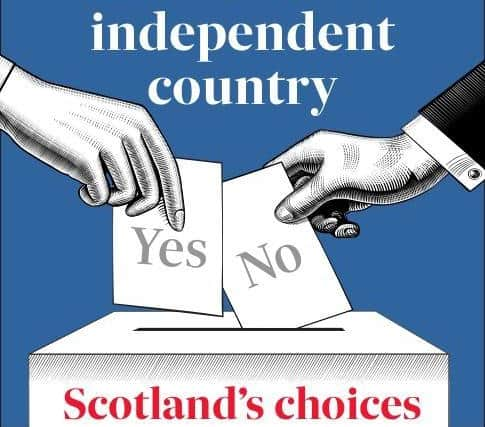Independent Scotland would have 'massive head-start' in its foreign policy, expert says
This article contains affiliate links. We may earn a small commission on items purchased through this article, but that does not affect our editorial judgement.
This is due to the strength of the Scottish diaspora and other cultural factors which could be used to promote the country such as the Edinburgh festivals and other large events such as the potential for Eurovision to be held in Glasgow.
Professor Rick Fawn, a senior lecturer in international relations and specialist on international security at the University of St Andrews, said “savvy self-promotion” could see Scotland join other small countries who do a “disproportionately good job at promoting themselves”.
Advertisement
Hide AdAdvertisement
Hide AdThe academic made the comments while speaking to The Scotsman’s new limited podcast series, How to be an independent country: Scotland's Choices.
The podcast is looking at how other countries have experienced independence and what lessons there might be for Scotland, with the fifth episode focusing on a newly independent Scotland’s foreign policy.
It has previously examined the question of the England/Scotland border, the question of currency and what sort of democracy the country may have.
Prof Fawn said: “Of course there is Scottish diaspora in the United States that promotes itself, I would say perhaps not as extensively as the Irish diaspora, but it is to say that there are people, there are historical experiences, there are popular cultural references that many European countries can latch on to.
"In that way if Scotland were to become independent, I think it has a massive head-start on this and you could see a lot of these things being galvanised very, very quickly.”


However, the academic did warn of potential risks for a newly independent Scotland.
He said: “With initiative, it is doable … [but] absolutely there are challenges.
"There are going to be some turbulence when any entity makes that kind of adjustment.”
Advertisement
Hide AdAdvertisement
Hide AdProf Fawn also said it was critical for those planning independence to consider foreign policy at length and establish a “game plan”.
"This really does need to be considered, don’t take anything for granted, don’t take anything lightly,” he said.
"Think about the costs and the benefits, these are things that really do need to be studied and worked out.
"If anybody is going to do that, it is quite essential that there is a game plan.”
The expert said foreign policy must be done well to ensure long-term economic success and avoid potential pitfalls as a new state.
Prof Fawn said: "Especially when we are in a project of state-making and nation-making as so many of these places across central and south-eastern Europe/former Soviet Union have done, it is very important, but also very tricky to get that concurrence between elite views and the people who are thinking about this all of the time and may have particular views or particular agendas even, and what are wider views and expectations.
"If you want any of this to work in the longer term and you want to have returns for that society, including economic, it has to be done well.
"There is nothing in it that pre-ordains success.”
The fifth episode of the brand new limited series podcast, How to be an independent country: Scotland’s Choices, is out now.
It is available wherever you get your podcasts, including Apple Podcasts and Spotify.
Comments
Want to join the conversation? Please or to comment on this article.
